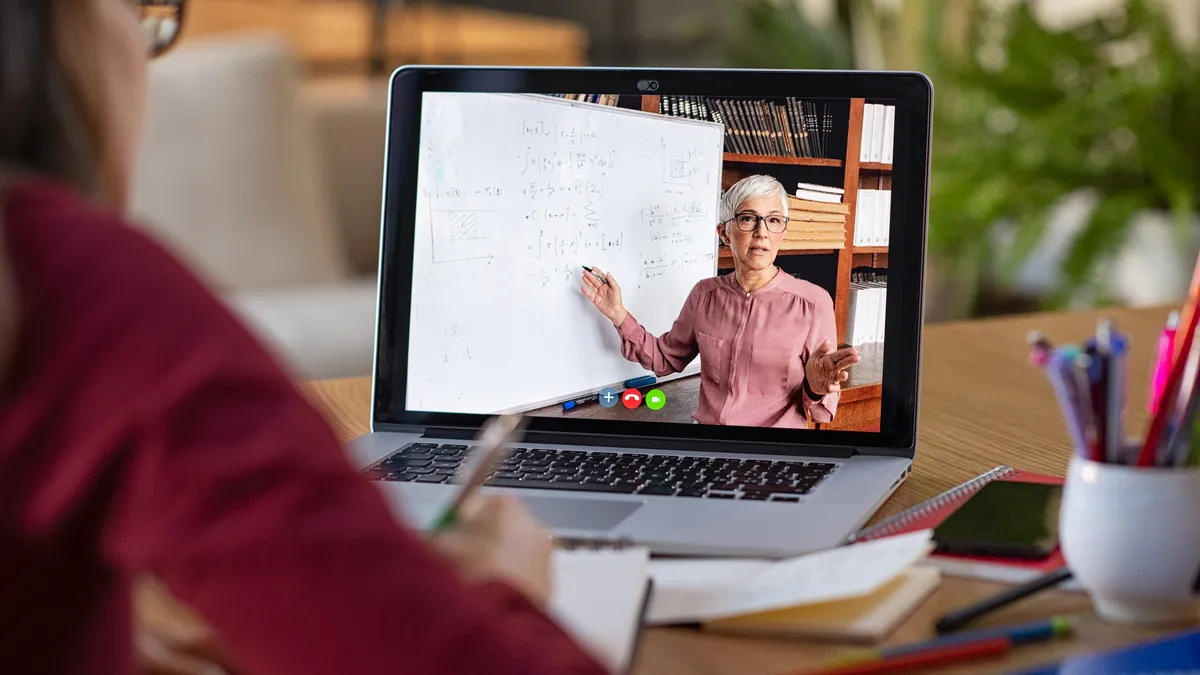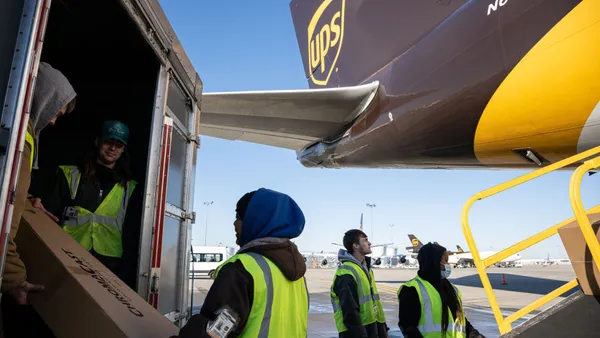Dive Brief:
- Maintaining student engagement in STEM subjects has been a particular challenge for K-12 throughout the COVID-19 pandemic, as educators have had to figure out adjustments and alternatives for hands-on, interactive lessons in remote and hybrid environments, according to EdTech: Focus on K-12.
- At Cajon Valley Middle School, for example, educators sent students kits with STEM materials and activities that utilize everyday items like tape, string and cardboard to deliver relevant, hands-on activities. Platforms such as Google Classroom, Beable and Flipgrid are also allowing more wiggle room on the pace of learning, while career assessments are helping to further identify students' personality types, interests and opportunities.
- Sean Musselman, remote learning academy director and a science specialist for Burlington Public Schools in Massachusetts, also notes that discourse is critical for effective STEM teaching, and adjusting for that was a particular challenge for educators early on in the pandemic.
Dive Insight:
Despite initial setbacks to STEM learning when the pandemic forced schools to go remote, students and teachers have adapted. Regardless of the distance, students can still plan and design projects collaboratively through technology platforms that make video conferencing possible. Nonverbal cues, such as nodding, also aren’t lost when communicating via video. By its flexible nature, project-based learning also lends itself to distance teaching and STEM.
Virtual field trips and online experiments can also expose students to things they may not have otherwise been able to see. Many museums and parks have expanded online offerings so students and adults alike can experience these places without leaving their homes.
The Henry Ford Museum website, for example, features many options. Melissa Collins, a second grade teacher in Memphis, Tennessee, asks museum curators during virtual field trips to discuss their historical perspectives. Encouraging students to ask questions also keeps them engaged.
In Texas, Ector County Independent School District is working with colleges to give students opportunities to contribute to real-world research virtually. The district is also developing labs so students can help design experiments from home.











